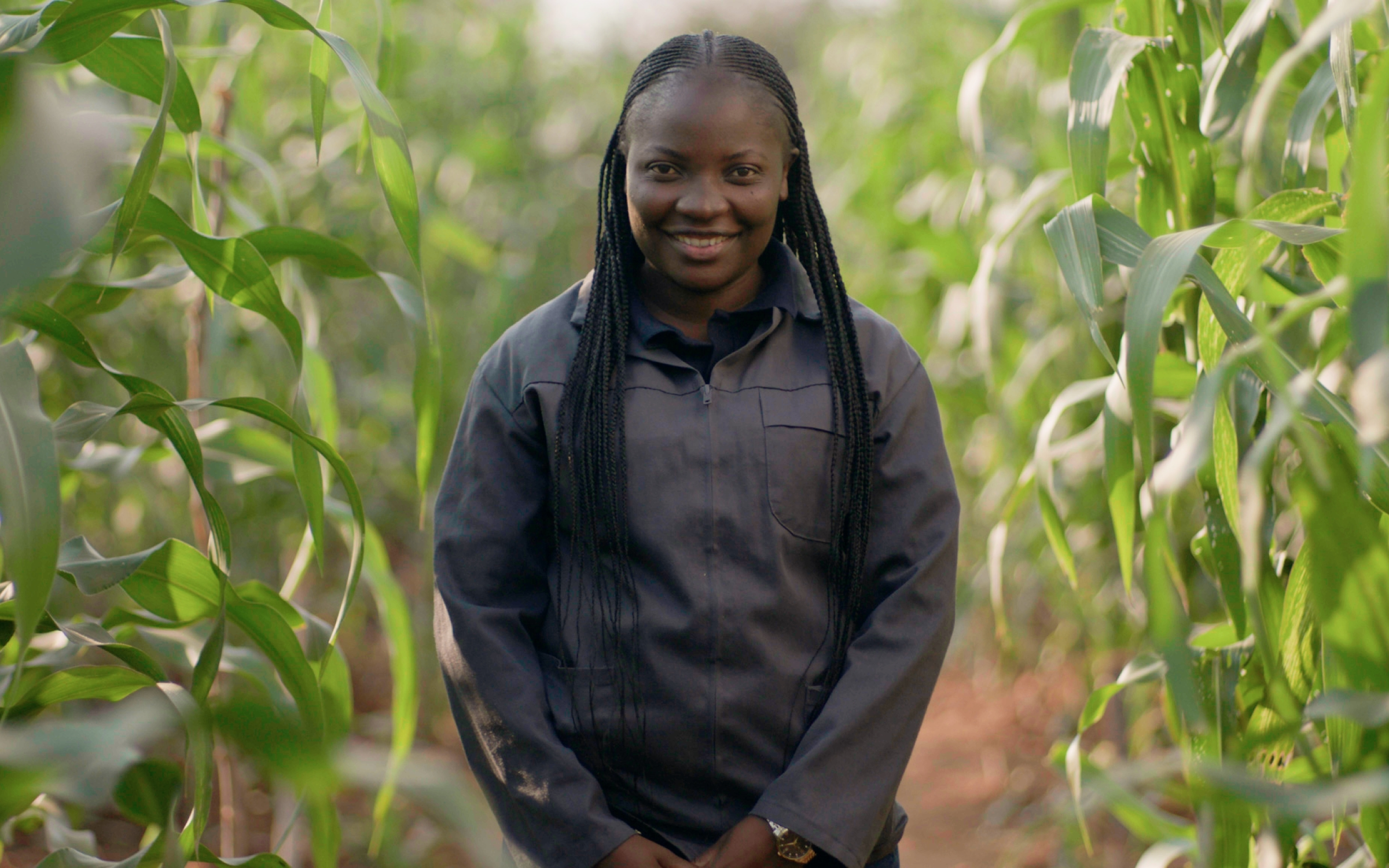Dora the plant explorer
She’s up at 3 a.m. to help farmers thrive
Dora Shimbwambwa looks for novel ways to fight invasive pests.


I’m an optimist by nature, but sometimes my optimism gets challenged. It’s not always easy to believe that the future is bright. Over the years, though, I’ve developed a trick that always helps cheer me up: I look to the unsung heroes who are doing amazing work around the world to improve people’s lives.
I’ve written about many of them in my Heroes in the Field series, and today I want to introduce you to another one. Her name is Dora Shimbwambwa, and she’s a plant researcher in Zambia who’s using her expertise to help farmers thrive in a warming climate.
Dora works as a research officer at the Zambian office of the Centre for Agriculture and Bioscience International, where she focuses on developing new ways to combat crop pests and diseases. Her research aims to help smallholder farmers improve their yields and incomes while promoting sustainable farming practices. As she explained, "My work involves creating awareness about crop pests and then researching different technologies that will help control the pest."
Dora seems to have been born to do this work, though it took her a while to realize it. She grew up at the Cotton Development Trust, an agricultural research station in southern Zambia where her father worked. Surrounded by plant scientists, she was exposed to agricultural science from an early age, but like a lot of kids, she didn’t pay much attention to her dad’s work.
When it was time to pick a career, she opted to follow in his footsteps, but mainly because she knew it would lead to a good job. Then, as she got into the work, she started to see the impact she could have for her community—“and from that time,” she says, “I haven’t looked back.”
Dora is especially focused on an invasive pest called fall armyworm, which has devastated maize crops across Africa in recent years. Unfortunately, climate change is making crops even more vulnerable—fall armyworm thrives in a hot, dry environment, and Zambia is in the midst of its worst drought in 40 years.
Synthetic pesticides are part of the solution, but they can be expensive, and they can kill other insects that are beneficial to the crops. So Dora is working on alternative methods, such as using biopesticides that target the fall armyworm specifically and don’t leave toxic residues.
Beyond her scientific expertise, what impresses me about Dora is her commitment to working directly with farmers and agricultural extension officers. She regularly travels to rural communities to conduct trainings and field trials, ensuring that her research translates into real-world impact. She keeps farmers’ hours—usually getting out of bed around 3 a.m., a habit she has had since she was a young girl.
Of course, none of this important work happens in isolation. Dora is quick to emphasize the collaborative nature of her research and acknowledge the people who have mentored her along the way. She's part of a growing network of African women in agricultural research, supported by organizations like African Women in Agricultural Research and Development. "Agriculture is mainly dominated by men,” Dora says. “So sometimes you just need a voice to guide you and give you confidence."
Thanks in large part to young scientists like Dora, I’m quite bullish about the future of African agriculture. By developing effective and practical ways to help farmers grow more food and earn more money, they are helping to build a brighter future for Africa. And that should give all of us reason to be optimistic.


